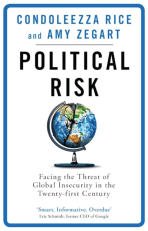Journal of Political Risk, Vol. 12, No. 8, August 2024
Simon Muwando1
University of Lusaka
Victor Gumbo2
University of Botswana
Gelson Tembo3
University of Zambia
Abstract
The world has experienced a dramatic increase in the flow of transnational investments following increased internationalization and globalization of firms in the previous decade. Country risk exposure is a cause for concern for all the institutions that are engaged in multinational trade and finance. The main objective of this study was to model the Zambia’s country risk. A mixed method with concurrent research design was employed. An autoregressive distributed lag technique was employed on annual data from the 1994 to 2018 period. Country beta was used as a proxy for indicating country risk. The findings of the study revealed that the main determinants of country risk of Zambia in the short run are beta, current account balance, political risk, unemployment rate, and short-term interest rates. In the long run, country risk of Zambia is mainly influenced by current account balance, betas, political risk and unemployment rate. Effective policies need to be implemented by authorities to manage persistent current account deficits and political risk.
Key Terms: country risk; country risk analysis; internationalization; globalization; autoregressive distributed lag; Zambia; globalization





